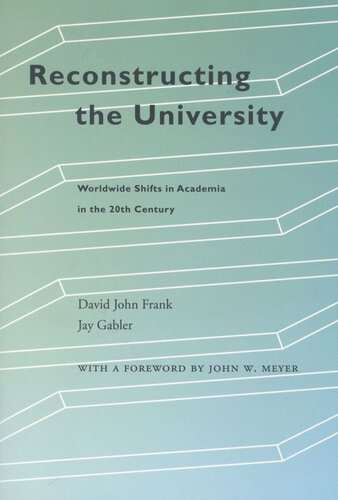

Most ebook files are in PDF format, so you can easily read them using various software such as Foxit Reader or directly on the Google Chrome browser.
Some ebook files are released by publishers in other formats such as .awz, .mobi, .epub, .fb2, etc. You may need to install specific software to read these formats on mobile/PC, such as Calibre.
Please read the tutorial at this link: https://ebookbell.com/faq
We offer FREE conversion to the popular formats you request; however, this may take some time. Therefore, right after payment, please email us, and we will try to provide the service as quickly as possible.
For some exceptional file formats or broken links (if any), please refrain from opening any disputes. Instead, email us first, and we will try to assist within a maximum of 6 hours.
EbookBell Team

0.0
0 reviewsCurrent conversations on the state of academia contain a broad sense of crisis over changes in the body of university knowledge—the decline of literature, the unbridling of ethnic studies, the growth of various applied programs, and so on. Much of the concern revolves around a perceived deterioration of the academic core in which, the thinking goes, the university's teaching and research priorities are increasingly compromised by external financial and political interests. With data on faculty and course composition over the twentieth century for a global sample of universities, this book provides an examination unprecedented in scope and scale of changes in academia. The authors document the changing emphases accorded the branches of learning, the applied and basic divisions, and the disciplinary fields. They find deep transformations, as anticipated, but offer a new explanation for these shifts. Changes in academic focus are less the work of outside interest groups, but instead are cultural maps to the altering features of globally institutionalized understandings of reality.